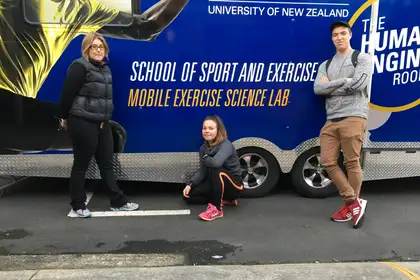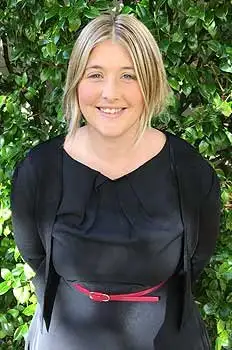
Dr Lynette Hodges, Tessa Nielsen, and Josh Bond
Chronic fatigue syndrome is a complex, debilitating and often misunderstood medical condition and although millions of people suffer with the illness worldwide, including an estimated 25,000 people in New Zealand, there is remarkably little research or funding available.
School of Sport, Exercise and Nutrition Senior Lecturer Dr Lynette Hodges was one of two recipients to receive the $25,000 grant, which supports those researching the treatment and prevention of chronic fatigue and long-Covid.
Dr Hodges’ research focuses on individuals whose symptoms get worse following any exercise or activity which would not have caused a problem before their illness. The most common symptoms include tender lymph nodes, sore throat, headache, joint pain, flu-like symptoms, poor memory, muscle pain, sleep disturbance, poor concentration, difficulty thinking, or fatigue.
Dr Hodges aims to assess and measure stress in the form of heart rate on activities of daily living. Individuals with chronic fatigue syndrome will wear a heart rate monitor for 25 days, along with completing daily activity and symptom diaries. The findings will provide a good glimpse into the lives of individuals with the syndrome and help demystify the boom-and-bust cycle to help individuals manage their energy and fatigue levels.
“As a physiologist, I am keen to help people live their best lives and hope that this study will develop a better understanding of how activities of daily living affect the physiology of those living with chronic fatigue syndrome.”
She says research shows there are many systems of the body that are affected, however there are very little management and treatment plans available.
“The work I have completed so far suggests some individuals may not be able to reach the heart rate guidelines suggested for physical activity let alone the number of minutes.”
Her research will benefit patients, caregivers, whānau and general practitioners, as well as clinical exercise physiologists and health professionals.
“It is anticipated this research project could provide evidence-based information on safe levels of activity among people with chronic fatigue syndrome, which is currently a missing piece in the jigsaw.
“Current methods of pacing are trial and error or boom and bust and are not currently based on any good evidence. I feel there will be many patients who will be interested to help in this observational study, and it will provide beneficial usable data that could be also transferred to those with long Covid.”

School of Sport, Exercise and Nutrition Dr Lynette Hodges